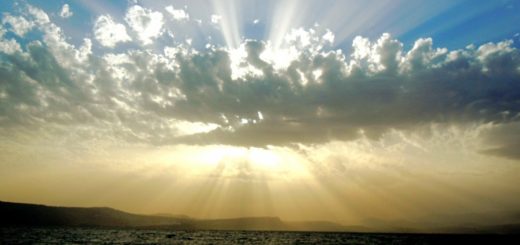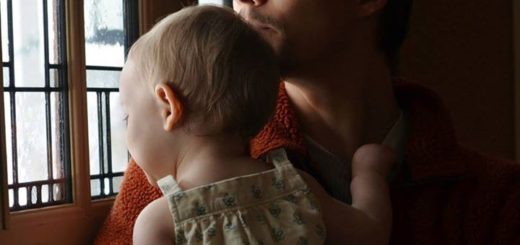Everyday Faith: Why I Stay Mormon

By TAMARRA KEMSLEY
Editor’s note: To celebrate the season of Christmas, we vaguely planned months ago to “feature perspectives on faith,” reached out to some people and then were blown away by their stories. Each is a unique, extraordinary reminder of how faith transforms everyday life.
I was sitting on the beach in Tel Aviv, my attention fixed on the half-hearted waves crawling their way up the sand. It was 3 a.m. and the only other person there was the man who had just told me he didn’t see a way forward for us.
What are you feeling?
The answer made its slow way from my heart to my tongue. Lonely.
True, we lived in separate continents, but even then we knew that wasn’t where the rift was widest and most unbreachable. Even though you are critical of the Church, you still want to stay a part of it.
They were sharp words, cutting their way through scar tissue with scalpel-like precision.
Even though.
I was eight when, the two of us dressed in matching white jumpsuits, my father baptized me, one hand clasping both of mine and the other supporting the small of my back as he dipped me backward into the waist-high water. I was giddy with the attention and the approval that immersed me as completely as the water had. You’ve done the right thing. People said it like they were wishing me happy birthday.
When I was 14, my family squished into the minivan, the smaller children sitting two to a seat, and drove north. It was summertime, and while other kids from school went to places like Disneyland or their grandparents’ in Vermont, I visited a 19th-century farmhouse and its adjacent forest in Upstate New York.
According to legend, it was there a 14-year-old Joseph Smith rose early one morning and, before setting about the day’s chores, escaped into the trees behind his house and went to God in prayer. Joseph’s description of what took place that day differs in the accounts he gave throughout his life. In some, he is a sinner seeking relief, in others a seeker of the truth. But in this they are the same: Those trees and the floor beneath them transformed into a conduit to the Divine that day.
This is the side of Mormonism that claims me. Trees transformed into temple walls, teenage boys into prophets—the message is as clear and potent as a baby born in a manger: God cannot and will not be bound by creed or text. He will not be bound by petty tribalism or competition. He will not be bound.
In the 12 years that followed this visit to the grove I both found and lost most of those who worshiped this God, who saw in our founding myth the democratization of the sublime that I did. On the surface they left for a thousand reasons—treatment of the LGBT community and women, issues with doctrine and the Church’s history. But really it all came down to this: As the Church tied the belt ever tighter on the definition of truth, those around me began to suffocate. It wasn’t long before I began tallying the losses, repeating their names over and over like an ever-growing mantra.
These days, I share pews and hymnals with strangers, who alternatively seek to reform and befriend me. I do not begrudge them or those who wonder how I stay. The thing is, with every challenge to my Mormon roots the story of Joseph Smith only becomes more relevant, more vivid. Which is why I refuse to leave. I refuse to hand the narrative over to those who would wring from it a story of spiritual tribalism and elitism, an excuse to call oneself chosen. I will forfeit my Sunday mornings, my tithing, and more than a few hours of sleep. But I will not forfeit the story or the God I see within it.
Tamarra Kemsley is a freelance journalist who sometimes forgets to leave her house. She recently moved from Jerusalem to perhaps the world’s second most religiously divided city—Salt Lake—in hopes of avoiding conversations about how she can be both Mormon and liberal. Find her on Twitter under @TamarraNicole.




beautifully written